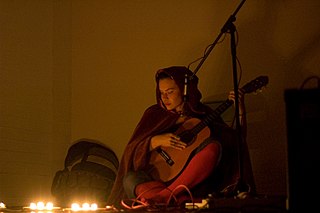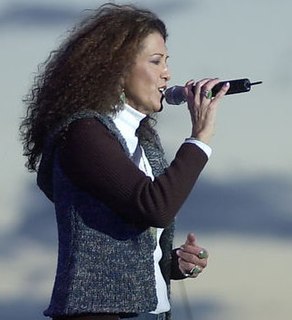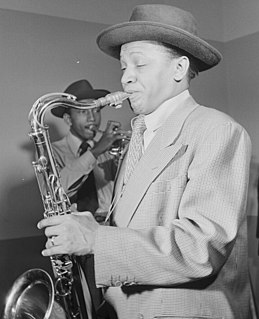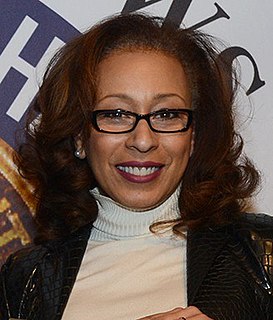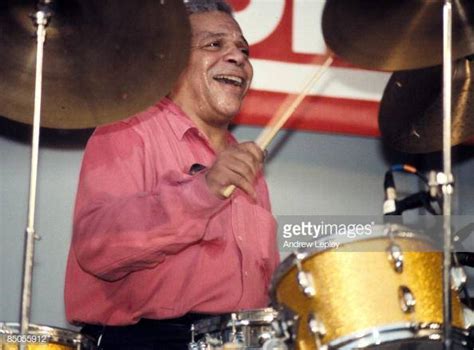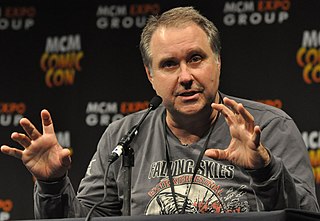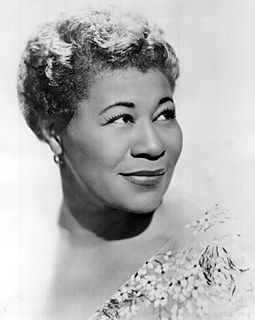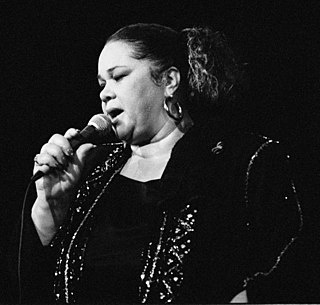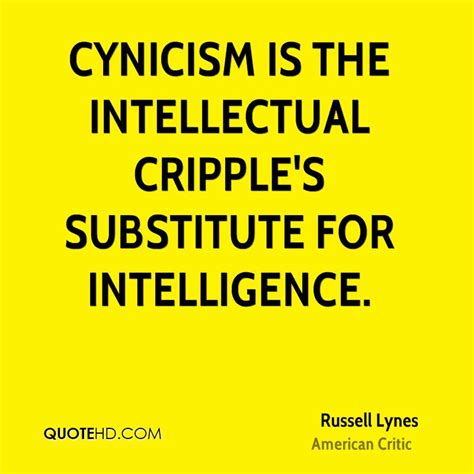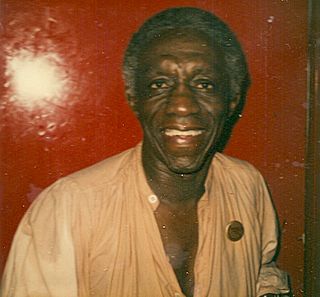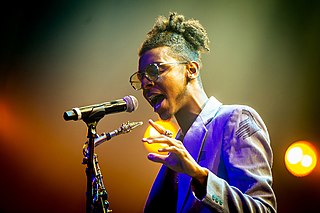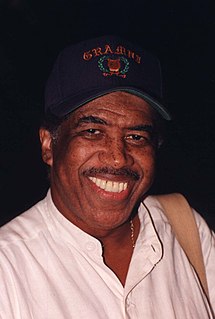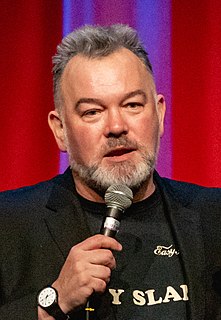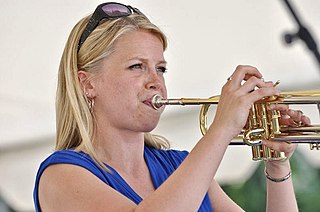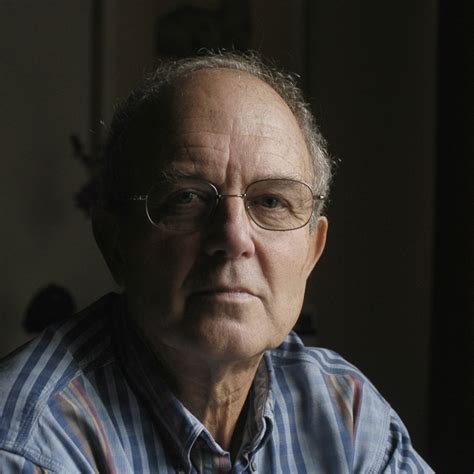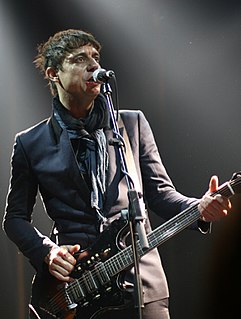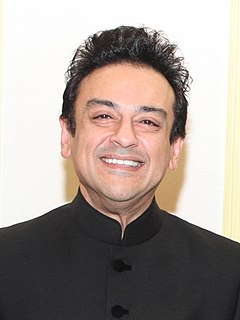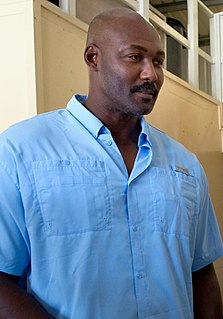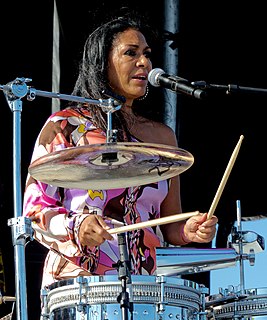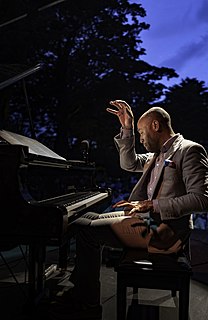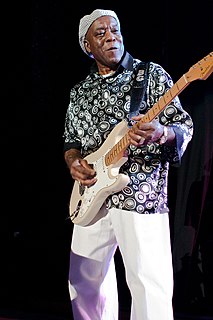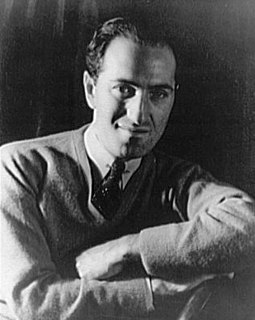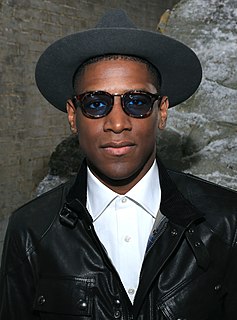Top 1200 Playing Jazz Quotes & Sayings - Page 6
Explore popular Playing Jazz quotes.
Last updated on December 21, 2024.
Most of the musicians that I'm playing with now have jazz backgrounds, so they're comfortable with improvisation. And they all know to make eye contact with me, and I'll give them some kind of sign when I think that the song's ending. Or maybe I don't even have to, because they all sort of feel it at the same time.
At this time the fashion is to bring something to jazz that I reject. They speak of freedom. But one has no right, under pretext of freeing yourself, to be illogical and incoherent by getting rid of structure and simply piling a lot of notes one on top of the other. There's no beat anymore. You can't keep time with your foot. I believe that what is happening to jazz with people like Ornette Coleman, for instance, is bad. There's a new idea that consists in destroying everything and find what's shocking and unexpected; whereas jazz must first of all tell a story that anyone can understand.
When you're working on a television show with actors, what you hope you're doing is playing jazz with them all the time. You see what they're giving you, so you try to write back to that, and then they play with that, and you get a sense of what is going on. That's just a natural way in which TV series usually work.
Improvisation was the blood and bone of jazz, and in the classic, New Orleans jazz it was collective improvisation in which each performer, seemingly going his own melodic way, played in harmony, dissonance, or counterpoint with the improvisations of his colleagues. Quite unlike ragtime, which was written down in many cases by its composers and could be repeated note for note (if not expression for expression) by others, jazz was a performer's not a composer's art.
In New York, I was excited about the music in New York because the only music that I was more or less involved with in the South was either country and western or hillbilly music as we used to call it when I was a kid and, ah, gospel. There was no, there was no in between. And when I got to New York all the other musics that's in the world just came into my head whether it was the classics, jazz, I never knew what jazz was about all, had heard anything about jazz.
I have to admit that more and more lately, the whole idea of jazz as an idiom is one that I've completely rejected. I just don't see it as an idiomatic thing any more...To me, if jazz is anything, it's a process, and maybe a verb, but it's not a thing. It's a form that demands that you bring to it things athat are valuable to you, that are personal to you. That, for me, is a pretty serious distinction that doesn't have anything to do with blues, or swing, or any of these other things that tend to be listed as essentials in order for music to be jazz with a capital J.
I worry more about the marketing that's taken hold since the 70s. The Jazz era, the Swing era, those were huge. Entire decades were named for music. In the 1940s - after World War II - changes in taxation, ballrooms closing, people moving to the suburbs, and the onset of target marketing and the confusion of commerce with art caused some things to happen as a result that have taken us away from jazz and what jazz offers us.
Jazz stopped being creative in the early '80s. After your acoustic era, where you had the likes of the Miles Davis Quintet, when it gets to the '70s it started being jazz fusion where you had more electronic stuff happening, then in the '80s they started trying to bring back the acoustic stuff, like Branford Marsalis and the Wynton Marsalis & Eric Clapton sextet. It started dying down from there. Miles was still around in the '80s and he was still being creative; he was playing Michael Jackson songs and changing sounds, but a lot of people were still trying to regurgitate the old stuff.
The job of the jazz people is to take it as far as it will go and that's what they're doing. But in the process of taking it out there, there has to be some times when they're not getting it right. It all depends on what you dig. I personally don't think the fusion of jazz with the heaviness of rock is working.



